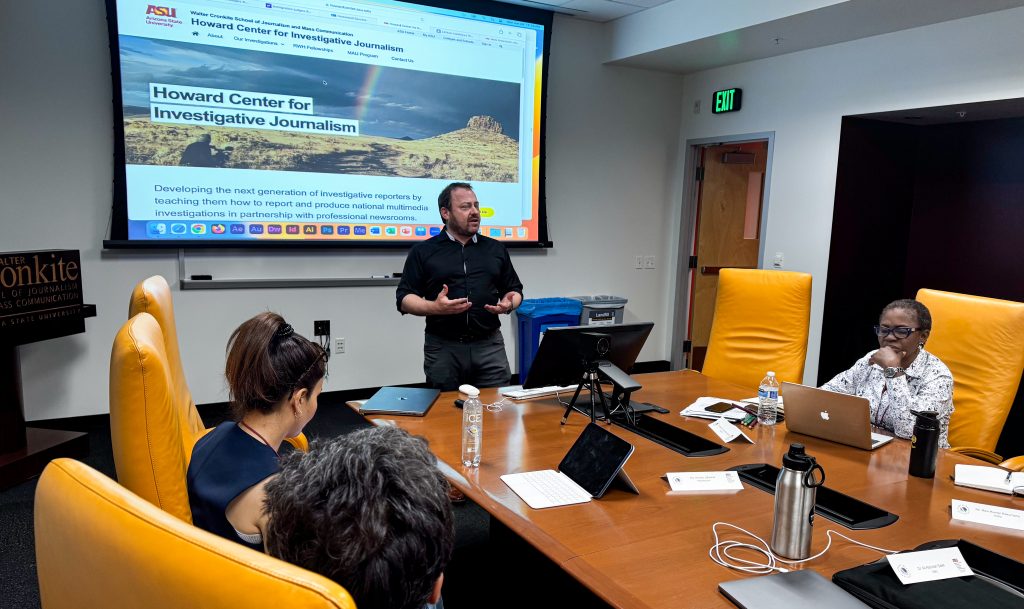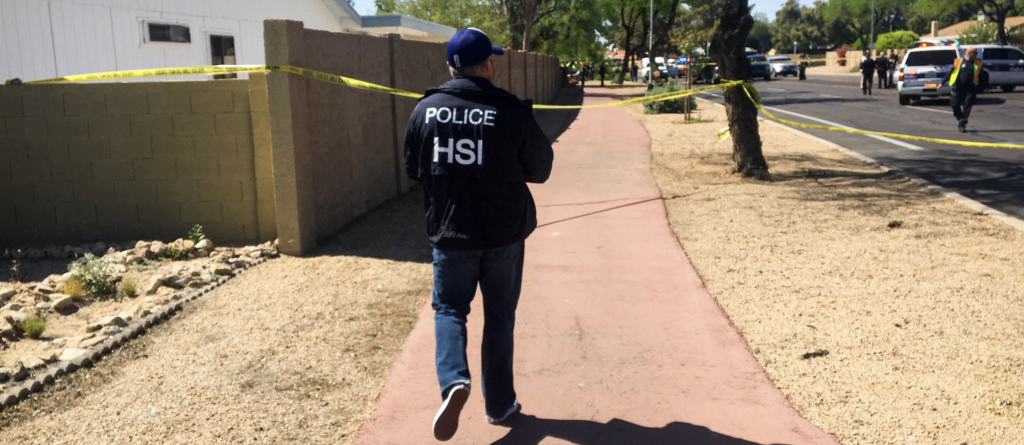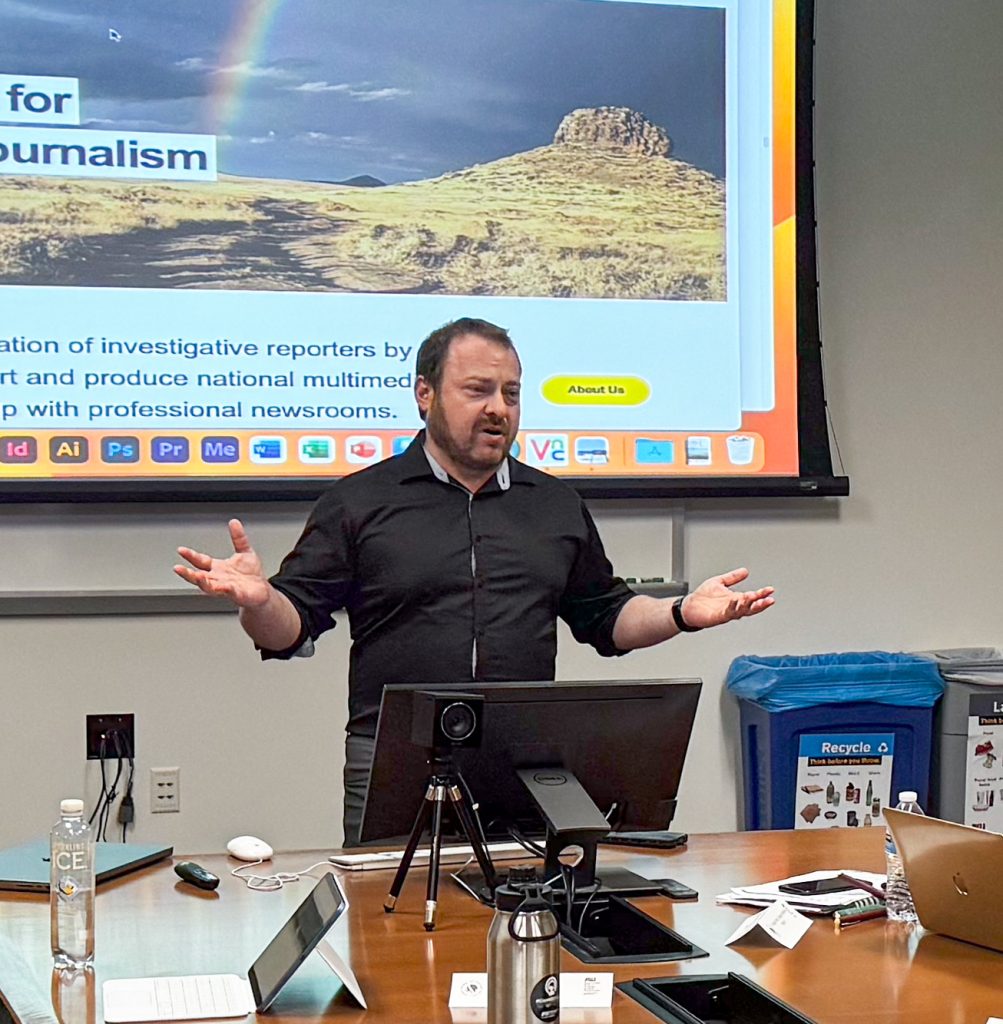“There is a folk law that crooks say to themselves: don’t kill a policeman or a journalist. That would only, as American reporters put it, ‘bring too much heat?”
— Hugo de Burgh, Investigative Journalism
The Killing of Don Bolles
On a hot June afternoon in 1976, Don Bolles, a dedicated reporter for the Arizona Republic, walked to his blue Datsun parked in downtown Phoenix. As he turned the ignition, a deafening explosion shattered the quiet, sending shockwaves through the city.
Don Bolles was a respected state capital reporter who had spent years exposing corruption and organized crime in Arizona. His relentless pursuit of the truth earned him many enemies, and it was believed that his reporting on land deals had provoked those responsible for his death.
The Arizona Project and the Birth of IRE
The outrage over Bolles’s murder galvanized the newly-formed Investigative Reporters and Editors (IRE), which decided to honor him by continuing his work. The Arizona Project was born, bringing together 38 journalists from 24 newspapers and broadcasters to complete Bolles’s investigations and highlight the corruption that led to his death.
The team set up a temporary headquarters at the Adams Hotel in Phoenix and produced an 80,000-word multi-part report. This extensive investigation was published in various newspapers nationwide, demonstrating journalistic solidarity and sending a clear message that silencing a reporter would only amplify their stories.
The legacy of Don Bolles and the Arizona Project underscores the critical role of investigative journalism. It is essential for holding power to account and ensuring an informed public. But how do we ensure that the next generation of journalists is prepared to take on this mantle?
Training the Next Generation at the Howard Center
The Howard Center for Investigative Journalism at the Cronkite School of Journalism and Mass Communication plays a crucial role in this mission. Supported by the Scripps Howard Fund, the center trains the next generation of reporters through hands-on investigative projects. They partner regularly with professional news outlets and break big stories winning national and regional awards.
Insights from Mark Greenblatt: Guiding Future Investigative Journalists

As a part of the SUSI 2024 cohort, it was our privilege to meet multiple Peabody Award winner Mark Greenblatt, Professor of Practice and Executive Editor of the Howard Center for Investigative Journalism. Mark, with his extensive career including work for Scripps News in Washington, D.C., and ABC News in New York, was a delight to interact with during his session. His passion for investigative journalism was palpable, and his sense of purpose was evident in everything he spoke about. He emphasized that “transparency is everything for a journalist,” a cornerstone of professional ethics. He highlighted how meticulous documentation can safeguard a journalist’s credibility during fact-checking.
But guiding students through the complexities of pursuing a story can be quite a challenge. When I asked him about this, he pointed to his greying moustache and quipped, “When I joined the center, I never realized there is so much ‘teaching’ involved in teaching.”
Impactful Stories: Homeland Secrets

Mark shared with us the profound impact of the Howard Center’s investigative work. One significant story, “Homeland Secrets,” delved into the scrutiny of federal law enforcement shootings, particularly involving ICE’s Homeland Security Investigations (HSI). Students at the Howard Center meticulously gathered and analyzed extensive data, including public records, audio recordings, and expert analyses.
Another Story: Immigration Judges Defy a Higher Court
Mark also discussed another crucial investigation he led, titled “Immigration Judges Defy a Higher Court, Trapping Hundreds Behind Bars.” This story revealed how a group of immigration judges was defying rulings by a federal appellate court, resulting in detainees being held for years without a chance to make their case for freedom.
Mark explained how this investigation exemplified the time-consuming and challenging nature of investigative journalism. The process involved filing multiple Freedom of Information Act requests, analyzing vast amounts of data, and conducting numerous interviews. Mark shared how he and his team meticulously reviewed public records and court documents to uncover the truth. They faced significant hurdles, including gaining access to detention centers and obtaining interviews with key figures.
This story highlighted the importance of persistence and thoroughness in investigative journalism. Mark emphasized that journalists must pursue all avenues for information, often making multiple requests for interviews and data. He teaches his students the importance of sending “no surprise letters” to the subjects of their investigations, ensuring they have an opportunity to respond before the story is published. This commitment to fairness and accuracy is a cornerstone of Mark’s teaching philosophy.
Mark Greenblatt’s Dedication to IRE and Journalism Ethics
When Mark Greenblatt joined us for the discussion, he had just returned from the annual IRE conference held from June 20-23, 2024, in Anaheim, California. The conference, a hub for professional development in investigative and data journalism, was where Mark received the exciting news of his re-election to the board of directors.
Mark used this opportunity to speak passionately about the Investigative Reporters and Editors (IRE) organization, sharing some amazing resources with us. He invited all SUSI Scholars, whether they are journalists or educators, to join the IRE. During his session, he logged into the IRE website and showcased a valuable tip sheet from a seasoned journalist who had spent years working on immigration stories. With excitement, I called out during his demo, “Mark, we’re sold!”

Beyond sharing practical tools, Mark’s session was deeply personal and emotional. Mark recalled how his mother’s persistent calls would often catch him off guard, but her concern kept him grounded and committed to ethical journalism. This personal accountability, coupled with his desire to make his children proud of his work, drives his uncompromising stance on ethics and truth in journalism. He believes that standing on the side of the voiceless and ensuring their stories are told is the true essence of journalism.
The Torchlight of Truth: The Enduring Need for Investigative Journalism
In a world where investigative journalism is under constant threat, its role in exposing the truth is more vital than ever. The murder of Don Bolles ignited a relentless pursuit for truth and accountability, embodying the very essence of investigative journalism. Without this crucial torchlight to expose the darkest corners of our society, the world risks being overrun by demagogues. As Mark Greenblatt aptly put it, “Investigative journalism is like a torchlight you throw into the most darkened corners of our society; it is the sunlight which will disinfect, and that’s what we need.”
